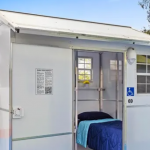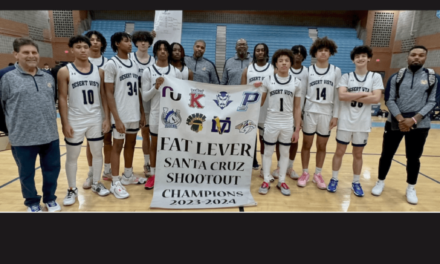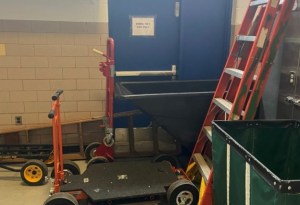By Dr. Meghan Venable-Thomas
“When I think of home I think of a place where love’s overflowing.” This is the first line of a song in a musical I watched recently, “The Wiz.” A retake on the film “The Wizard of Oz” in which Dorothy, played by Diana Ross, is transported to an unfamiliar world making new friends along the way but ultimately all in the pursuit of getting back home.
Why would the whole premise of this iconic story and remake be all about home? Why is home so important? When I think of home, I think of a place I feel safe and well. Where I can find peace, comfort, and support. A place of retreat and respite that allows me to show up every day. Imagine if the place you called home wasn’t any of those things, or if you didn’t have a place to call home at all.
While recently experiencing some of the coldest days Birmingham has had in years, I was able to turn up the heat, reach for my blankets and sweaters and gather with family. There were many that did not have that luxury.
Although everyone deserves home, not everyone has one. When home is so critical to our health wellbeing, it should not be a luxury but something we all deserve.
In the Department of Community Development at the City of Birmingham we envision a Birmingham where all communities thrive. Home is at the heart of this. Driven by our passion for people, we aim to bring inspiring solutions to every community in Birmingham and to make healthy, dignified, and sustainable housing into homes attainable for all. To be successful, we are creating programs that meet the needs of our residents while supporting the capacity of our partners to apply innovative solutions.
Thus, we are excited to launch our new pilot program, A Home For All, to serve our most chronically unhoused who may be seeking alternative options for safe sleeping that include wrap-around services to prepare for more transitional or permanent supportive housing options.
This pilot will also build the capacity of local providers to manage safe sleep while sharing resources to create the conditions people need to move toward sustainable housing. We will work with selected providers to create and operationalize this pilot program to house and support participants to get on a pathway to home.
This pilot is just one step in our journey but it is an important one. On any given night there are around 900 people in shelters or unhoused in Jefferson County. Over 260 of these individuals are chronically unhoused – experiencing at least two episodes of shelter living and have a substantiated need for long term case management and supportive services.
Many more are at risk. A financial survey in 2019 shared that 59% of Americans were one paycheck away from experiencing homelessness. The pandemic’s impact over the past two years has only exacerbated that risk and made homelessness a reality for many more.
Our pilot supports meeting an immediate need while exploring opportunities to find effective operational and programmatic models that can be an example for cities across the nation.
Our approach is to increase the accessibility of housing across the spectrum of needs in our community. Centering our most at risk and providing choice that turns housing into home and supports community building. So how do we do this?
We build more homes and support existing ones. We need more houses and we will build them. A month ago, we broke ground on a development of 53 homes for affordable home ownership in Shadowbrook. The largest affordable home ownership development we have seen in the last decade. We are simultaneously building homes in Woodlawn and Oakhill and that is just the beginning. We are building houses, but to create homes, we must place people at the center. And to truly be impactful, we must center our most marginalized. Those who have been undervalued and most negatively impacted by the disparities in our society. That means creating opportunities where they have not existed in the past and providing options for those who have not had them.
We are launching our Down Payment Assistance Program to ensure that residents are prepared and equipped to move into home ownership. We recently launched our Lead Abatement Program to ensure homes are healthy for our families and we will be relaunching our Critical Repair Program to ensure that legacy residents’ homes support their ability to thrive. Homeownership is still the number one wealth generator in the country and we want to make that opportunity available to everyone.
We meet people where they are. We focus our delivery mechanism through housing. But we are well aware that the challenges people face are not singular. They are at the intersections of health, economic opportunity, education, and many more. When we invest in comprehensive housing strategies to support our neighbors experiencing homelessness, we create solutions for everyone and that means understanding their needs and addressing them.
We are committed to supporting the wrap around services necessary for stable housing. To provide one-on-one counseling that walks folks through the process, recognizes individuality and honors people’s unique lived experiences. We are creating a pipeline of housing opportunities to meet the spectrum of housing needs. From micro shelters and places that ensure safe sleeping for our neighbors experiencing homelessness, to permanent supportive housing for those transitioning from life’s most challenging times to senior housing for our legacy residents, to home ownership for those ready for the opportunity. Wherever our residents are in their pathway to home, we want to provide options on that journey.
We shift culture. We all deserve a place to call home and yet we don’t all have one. So it is our responsibility as a people to create opportunity and radically welcome those seeking community. When we all deserve home, we all deserve community and when we all deserve community, we are all neighbors. We must foster a culture that welcomes neighbors from all walks of life with the understanding we all want the same things –- happy, healthy, homes. Our journey to home can look many different ways, which means there are different pathways to get there.
We recognize that some of our residents’ needs may never allow for home ownership to be the most supportive goal, for which permanent supportive housing and safe sleeping opportunities must be available alternatives. Home can take many shapes and we need openness to what that may look like across our neighbors’ experiences.
We all play a part. No individual, community, organization, or initiative can change the trajectory of Birmingham’s health and housing alone, and lasting change will not happen overnight. It will take collective engagement and unprecedented coordination between the public and private sectors.
It will take talent, teamwork, and tenacity. It will take building the capacity of our local leaders and we are committed to supporting our public service providers to bolster their ability to support and serve our most impacted. That is why our strategy focuses on collaborative opportunities with nonprofits, corporations, institutions and people touching different aspects of health and housing.
With that, we are excited about our Home for All pilot program. Upon approval by the council to purchase up to 100 sleeping units, a Request For Proposals (RFP) will be released. We are seeking public service providers, nonprofits and institutions interested in piloting this capacity building program to support chronically unhoused with non-congregant housing and wrap around services necessary to create sustainable life options.
We are committed to centering our most impacted residents and that means creating solutions that meet their needs. If our residents experiencing the most challenges get access to what they need to be healthy, and supported, and on a pathway to home, then guess who else will absolutely be included in that reality? ALL other people. This is how we support housing equity. This is how we support Home for All.
Dr. Meghan Venable-Thomas is Director of Community Development for the City of Birmingham









